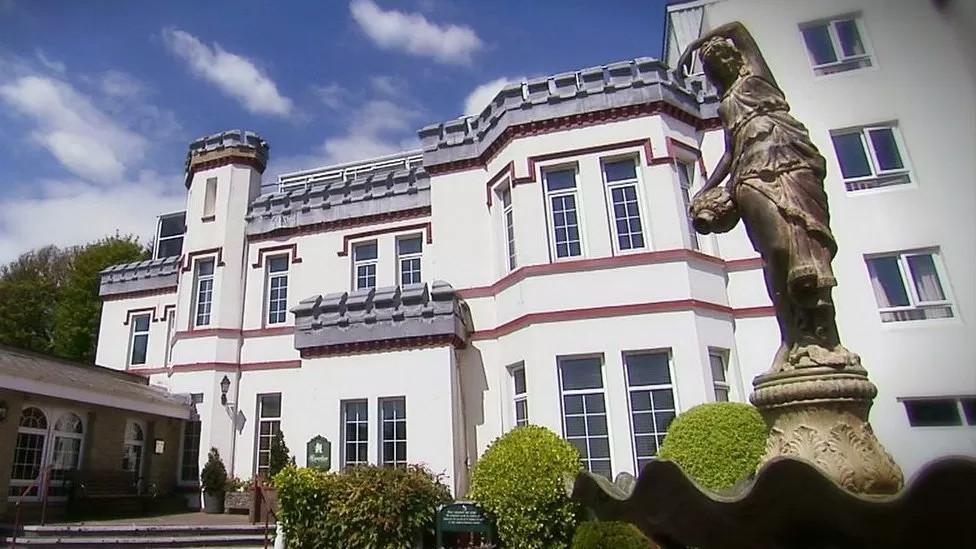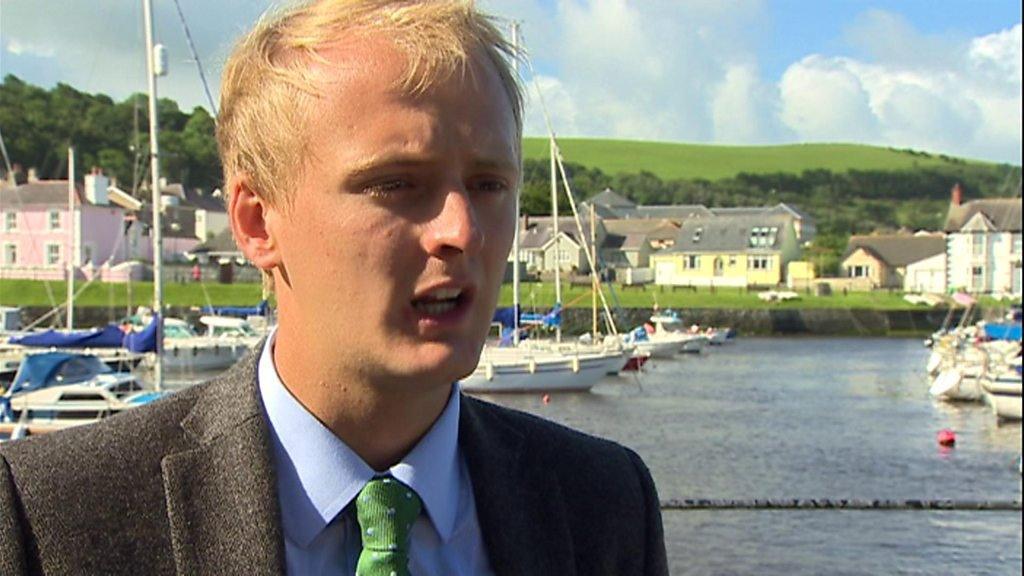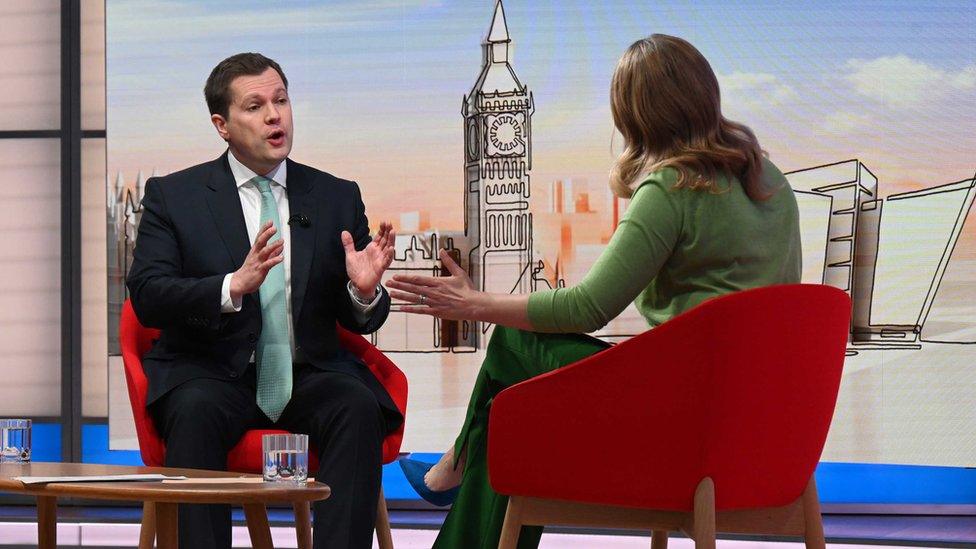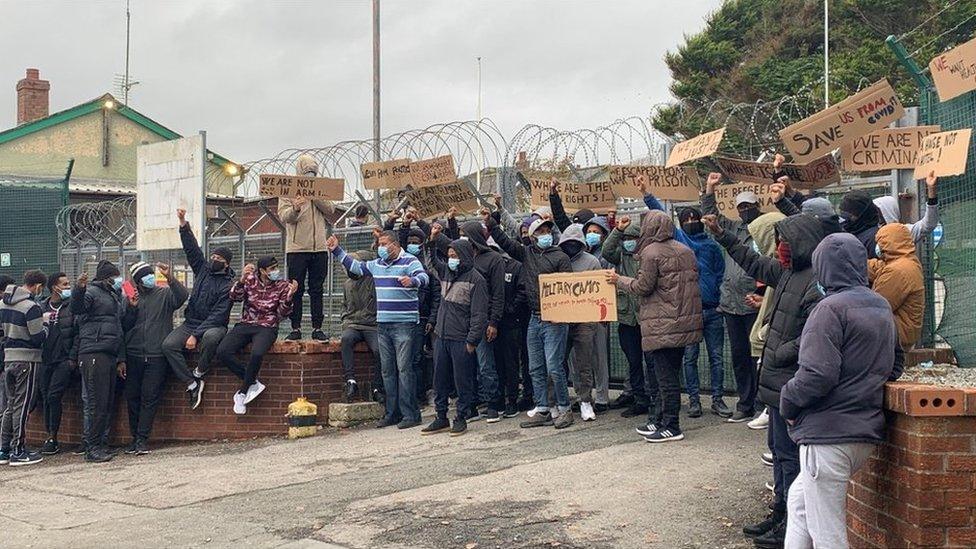Confusion over asylum seeker hotel plan - FM

At a glance
Wales' first minister says confidence has been "badly damaged" over plans to house asylum seekers at a hotel
Mark Drakeford wants the Home Office to be open with the public
The Home Office says the plans are necessary amid rising arrivals
- Published
A controversial plan to house asylum seekers at a hotel is still causing confusion for people living nearby, Wales' first minister has said.
Mark Drakeford said confidence has been "badly damaged" over the handling of the situation at Stradey Park Hotel in Llanelli, Carmarthenshire.
Speaking the day after police arrested two people at a protest at the site, he called for the Home Office to be more open with the public.
The Home Office said it worked to ensure arrangements for people in the area were safe.
Around 300 people returned outside the hotel on Monday evening for peaceful protests both supporting and opposed to the decision to house asylum seekers there.
Speaking at a press conference earlier, Mr Drakeford called for the UK government to be "open with local public services and the local community about what is being planned".
He added: "It seems to be there is still confusion about how events will unfold over the coming days.
"Confidence has been badly damaged in Llanelli and that confidence will have to be rebuilt if asylum seekers are to be successfully housed at the hotel."
He accused the Home Office of saying "different things" to "different people", not providing enough detail to Carmarthenshire council and failing to "attend to the interests of those nearly 100 people who work at the hotel".
A total of 95 staff are due to be made redundant at the venue.

Plaid Cymru MP Ben Lake said: "I understand the local authorities did offer a range of other locations."
Plaid Cymru MP Ben Lake raised concerns about the hotel with home office officials.
During an evidence session held by the Public Accounts Commitee as part of its inquiry into the asylum system, the Ceredigion MP asked senior civil servants about asylum seeker distribution policy.
Raising a case in west Wales without naming the hotel or the local authority in question, Mr Lake said he understood other locations had been suggested but "not explored".
"To the contrary, the decision was very much presented as a fait accompli and they were told to like it or lump it," he said.
Simon Ridley, the Home Office’s second permanent secretary, said he could not comment on individual cases but they "can't always go with the local preference".
In a previous exchange with the MP Mr Ridley said the home office does "listen to" councils and have conversations with them when making decisions about where to house asylum seekers.
Two arrested during asylum seeker hotel protest
- Published9 July 2023
Injunction bid against hotel asylum plan fails
- Published7 July 2023
Control over asylum system lost, claims councillor
- Published8 July 2023
Mr Drakeford said the Welsh government wanted to see Wales "providing for our proper share of people who come legitimately to this country seeking asylum".
He accused the Home Office of failing to learn from its own experiences, such as at a military camp at Penally which was briefly used to house asylum seekers despite local opposition.
The Home Office said it engaged with councils as early as possible and worked to ensure arrangements were safe for hotel residents and locals.
It said staffing decisions were at the discretion of the hotelier and contractors.
A spokesman added: "We have been clear that the use of hotels to house asylum seekers is unacceptable – there are currently more than 51,000 asylum seekers in hotels costing the UK taxpayer £6m a day.
"The Home Office is committed to making every effort to reduce hotel use and limit the burden on the taxpayer."
Related topics
- Published4 June 2023

- Published14 June 2023
